Schedule a Call Back
German technology empowering Indian industry
 Technical Articles
Technical Articles- Apr 26,18
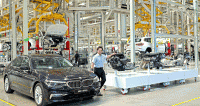
Out of approximately EUR 21 billion of machinery imported by India in 2016, Germany had a largest share of around 14.4%, ahead of USA (11.7%) and Japan (11.1%), says Rajesh Nath.
Germany is known globally for its engineering technology. The German manufacturers are internationally well positioned with their broad range of sectors: In 23 out of 31 comparable sectors, they are among the global top three; in 14 of which, they are in first place.
The global machine trade of the 52 most important exporters of mechanical engineering products surpassed the EUR 1 trillion mark for the first time in 2015, with more than 7.3% than the previous year at EUR 1.009 billion. Germany remained the largest machinery export country with a share of 15.4% in world machinery exports.
Indo German trade in engineering sector
India is the third largest sales market in Asia for the German engineering industry. Top sectors attracting FDI inflows from Germany are automobile industry (20.6%), services sector (15.9%), construction (infrastructure) activities (15.6%), industrial machinery (6.2%) and drugs & pharmaceuticals (6.2%). These top 5 accounted for about 64.5% of total inflows from Germany during the last fiscal.
In 2016, out of approximately EUR 21 billion of machinery imported by India, Germany had a share of around 14.4%, ahead of USA (11.7%) and Japan (11.1%). Maharashtra, Tamil Nadu, New Delhi, Karnataka, Andhra Pradesh are the top investment locations for German companies in India. Maharashtra with around 47.3% share of German investments remains to be the most attractive destination for German investments in India. In last 4 to 5 years, Pune has become the hotbed for new German investments. Karnataka and Gujarat are other important destinations.
VDMA identified the potential of the Indian market way back in the 1990s. That time the export of the German machinery to India was to the tune of only EUR 400 million, not large by any standard. However, VDMA saw a big future in the market and decided to open its own office in India. Presently more than 550 VDMA member companies are engaged with their own business in the Indian market.
In 2017, the trade between India and Germany grew by 9.93% to EUR 19.15 billion from a figure of nearly EUR 17.42 billion in 2016. Indian imports from Germany experienced a good growth of 9% over the previous year and amounted to EUR 10.69 billion. The exports from India to Germany attained a value of EUR 8.46 billion in 2017. This was an increase of 11% as compared to the year 2016.
In 2017, the total import of machinery from Germany reached a volume of EUR 3.10 billion. This was an increase by 4.38% compared with the same period of time in the previous year. Among the machinery sectors, major demand of German equipment was for power transmission (9.7%), textile machinery (without dryers) (8.23%), machine tools (7.16%), construction equipment and building material machinery (5.96%) and plastics and rubber machinery (5.54%). There are other sectors like food processing & packaging, process, material handling technology, etc which are growing steadily in India.
In order to become successful in India, companies need to know the characteristics and peculiarities of the Indian market. Here, the VDMA offices in India support the companies based on the needs of the members. These support activities include the provision of information on taxation and the Indian market, such as market entry barriers, future market developments or the current legal situation. In addition, the VDMA India office represents the interests of the members, including support for promotion actions, for example through participation in fairs and the organisation of symposia, meetings or similar presentation platforms for companies. With four offices in India, VDMA is geared to cater to the needs of the members and acts as an important bridge-head between the German and Indian industry.
Many German companies have set up and are setting up manufacturing in India in addition to the sale and service office. Several German companies and VDMA members are planning towards more investments in India. German companies like Siemens, Bosch, Schaeffler Group, Pheonix Conveyors, Liebherr, Schwing Stetter, KSB, Wirtgen, ZF, Thyssenkrupp, Vulkan, Nord Drives to name a few have invested substantially in the last 5 years.
Industrie 4.0
Industrie 4.0 is not only a topic for large-scale industry but must also be feasible for small and medium-sized companies (SMEs) as well. Implementation strategies are necessary that show for example how the harmonisation and integration with existing production technologies, IT systems and databases should occur. In addition, best practice examples can illustrate how production processes in the future should look, which automation solutions can be intelligently introduced or how the IT security of cross-company production can be ensured. By using Industrie 4.0 technologies, companies can rise to the global challenges of increasing customer requirements and volatile market developments. When products and processes are interconnected, and data is available in real time and is transparent, the foundation for decentralised production control is laid. This allows greater flexibility in production and thus increases competitiveness.
Through the interconnection of intelligent measurement technologies in production, data becomes available which together with automation solutions can be used for self-optimisation, self-configuration and self-diagnostics. In this way, the state of machines can be continuously captured and monitored from anywhere in the world. Thus, the conditions for predictive maintenance and services are created.
According to IBEF, the Government of India has set an ambitious target of increasing the contribution of manufacturing output to 25 percent of Gross Domestic Product (GDP) by 2025, from 16 percent currently. IoT, being one of the most important aspects of Industry 4.0 for India, is expected to capture close to 20 percent share in global IoT market in the next five years. According to IBEF forecast, the IoT market in India is projected to grow at a CAGR of more than 28 percent during 2015-2020. Government of India has taken initiatives such as Green Corridor and ‘Make in India’.
It is against this backdrop that the VDMA established the “VDMA Industrie 4.0 Forum”. Together with VDMA members, the key action fields research, norms and standards, IT security, production and business models, legal frameworks and employee qualification are advanced, and the sharing of information and experience is stepped up. To create more awareness among the manufacturing industry we are organising symposium on Industry 4.0 on June 6, 2018 and June 8, 2018 in Bangalore and Pune respectively.
The event would be a confluence of industry veterans, policy makers, academia, and research institutions. Decision makers of VDMA members, Indo German companies, Indian companies from engineering industry from both the cities are expected to participate. Notable speakers from companies from Germany and India would enlighten the audience on various facades of Industry 4.0 - smart factory, digitization, predictive maintenance, business model/strategy, data security, etc.
is the Managing Director of VDMA India and was recently conferred the ‘Cross of the Order of Merit’, the highest civilian honour awarded to individuals for their services to Germany. He can be contact on email: rajesh.nath@vdmaindia.org
Related Stories
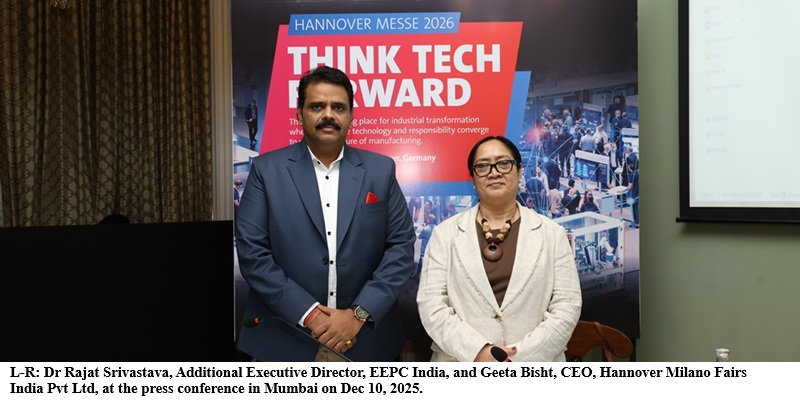
Hannover Messe 2026 to focus on automation & digitalization, adds Defense Area
At the upcoming Hannover Messe, AI will be a recurring theme throughout all the halls, and will play a central role on almost all stands.
Read more
HANNOVER MESSE Launches New Defence Production Area in Hall 26
This new platform fosters direct connections between suppliers and users, facilitating targeted dialog on industrial production for security-critical applications.
Read more
Igus expands readycable portfolio with new cables for industrial camera tech
Ready-to-connect, durable and tested cables with Keyence plug-in connectors increase the reliability of vision systems.
Read moreRelated Products
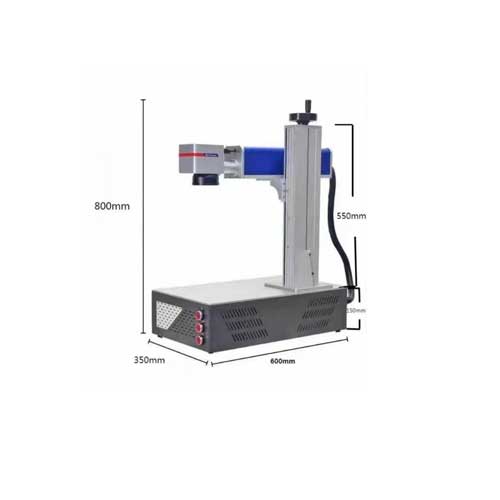
Uv, Fiber, Co2 Laser Processing Systems
C And C Laser Engineering Pvt. Ltd. provides flexible, cost effective and low maintenance CO2, IR – Fiber/Diode-pumped, GR & UV marking & other pro Read more
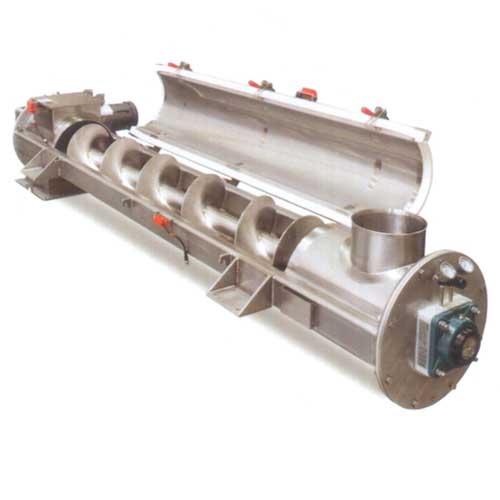
Screw Feeder
Manish Engineering Works offers a wide range of screw feeder.
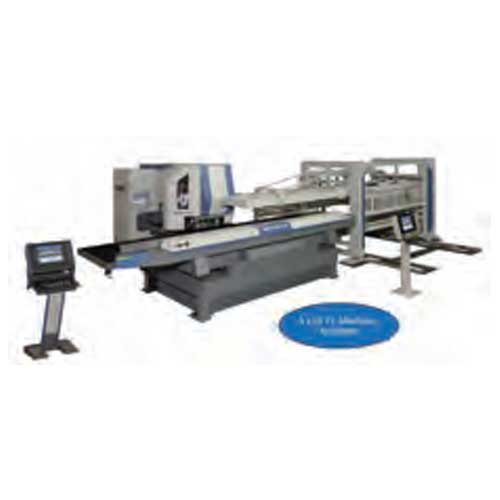
FMC - Motorum 3048 Tg With Fs2512
Meiban Engineering Technologies Pvt Ltd offers a wide range of compact & highly productive FMC - Motorum 3048 TG with FS2512. Read more















